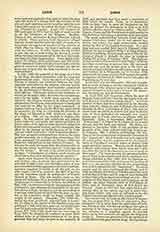

Lotti, Antonio, composer, b. at Venice in 1667; d. there, January 5, 1740, and studied under Legrenzi, producing an opera, “Il Gustano”, in his sixteenth year. On May 31, 1692, he was appointed second organist of St. Marks, and on August 17, 1704, he succeeded Spada as first organist. On April 2, 1736, he was elected maestro di cappella, though Pollarolo, Porpora, and Porta were formidable rivals for the much-coveted post, with a salary of 400 ducats. Between the years 1703 and 1730 he composed numerous masses and motets, especially his “Miserere“, which supplanted the version of Legrenzi and is still sung at St. Mark’s on Holy Thursday. Lotti also composed twenty-seven operas (1693-1717), and he spent two years at Dresden, producing various works. After his return to Venice, in November, 1719, he gave up secular writing, and devoted himself solely to church and chamber music. Had he continued at operatic writing his financial success would have been considerable, but he preferred his post as maestro at St. Mark’s. One incident in his career was the controversy over a madrigal which Bononcini claimed and which, it is said, led to that eminent composer leaving London, but it is now generally believed that Bononcini was wronged in the matter, as really there was no need for a man of his powers borrowing from Lotti. Moreover the incident occurred in 1731, and Bononcini remained in London for over a year receiving royal patronage. Lotti was an excellent teacher, as is evident from his many famous pupils, e.g., Marcello, Alberti, Bassani, Gasparini, and Galuppi. He was taken seriously ill in 1736, but lingered until January 5, 1740, and was interred in the church of St. Geminiano. The monument to his memory was destroyed with the church in 1851.
W. H. GRATTAN-FLOOD

